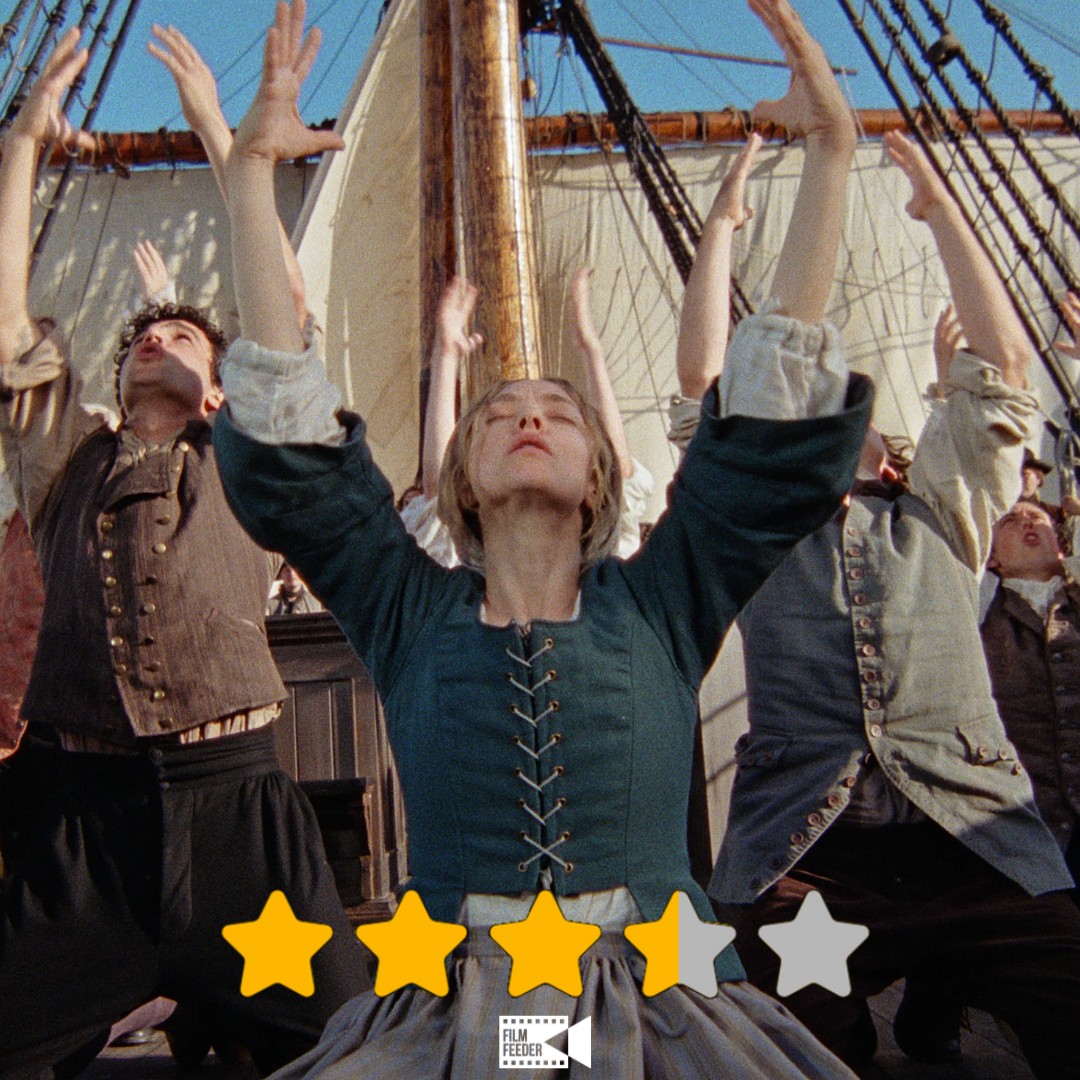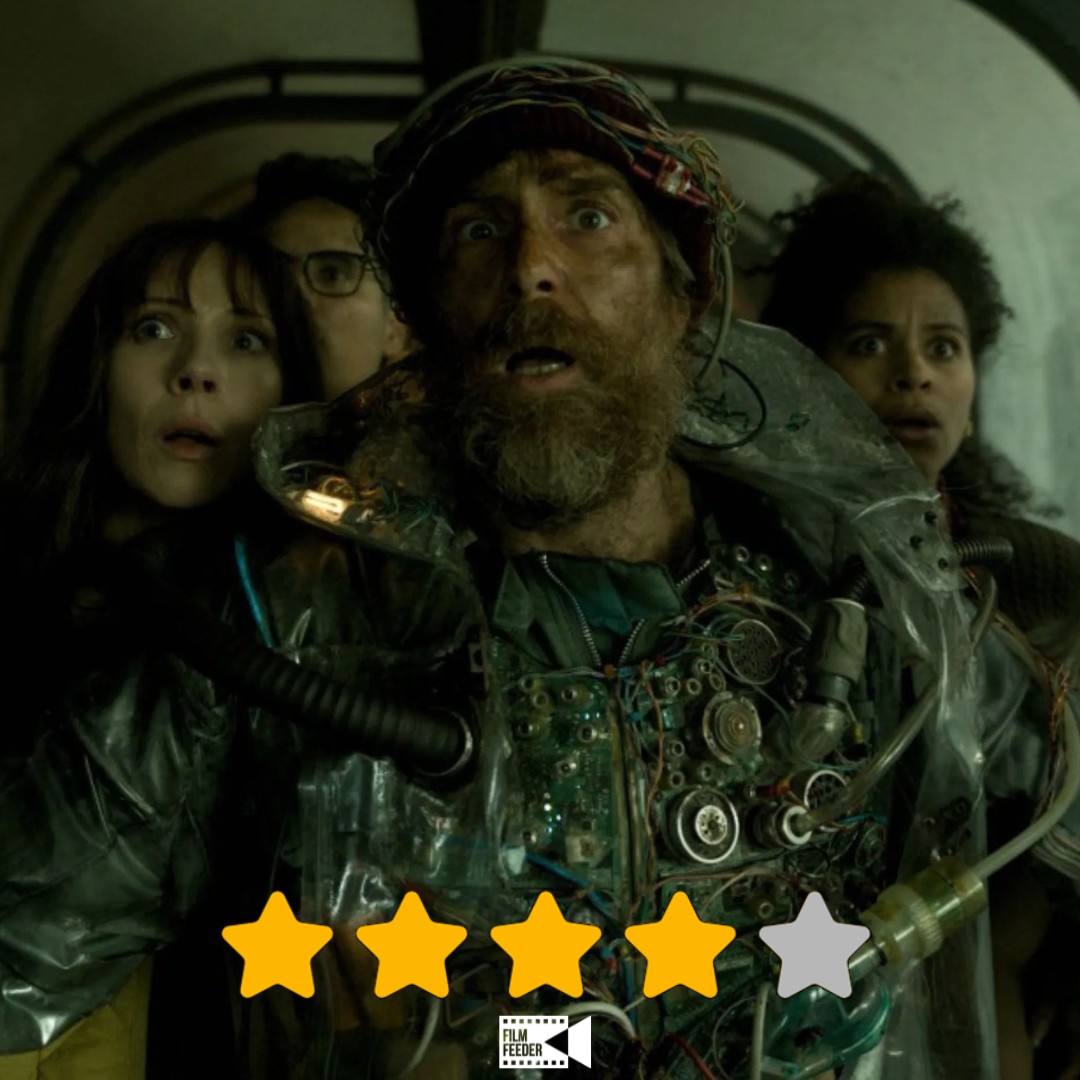
The Accountant 2 (dir. Gavin O’Connor)
Certificate: 15
Running Time: 132 mins
UK Distributor: Warner Bros
UK Release Date: 25 April 2025
WHO’S IN THE ACCOUNTANT 2?
Ben Affleck, Jon Bernthal, Cynthia Addai-Robinson, Daniella Pineda, Allison Robertson, J.K. Simmons, Robert Morgan, Grant Harvey, Andrew Holland
WHO’S BEHIND THE CAMERA?
Gavin O’Connor (director), Bill Dubuque (writer), Ben Affleck, Lynette Howell Taylor and Mark Williams (producers), Bryce Dessner (composer), Seamus McGarvey (cinematographer), Richard Pearson (editor)
WHAT’S IT ABOUT?
An autistic criminal accountant (Affleck) teams with his more lethal brother (Bernthal) for a new mission…
WHAT ARE MY THOUGHTS ON THE ACCOUNTANT 2?
As someone who proudly identifies as autistic, it saddens me to see how far we still have to go in terms of how autism and neurodivergence are represented of in media. Thanks to films like Rain Man and The Black Balloon, numerous stereotypes still persist, such as a complete lack of empathy and understanding of social cues, and in extreme cases such as Sia’s disastrous Music – which to this day I still believe to be a hate crime against autistic people – certain depictions can be downright offensive. Studio movies with autistic main characters like Warner Bros’s 2016 action-thriller The Accountant don’t exactly help the cause, for not only are the leads often played by non-neurodiverse actors (or at least, none that are public about their condition), but they play into a number of those stereotypes which reinforce since-disproven myths surrounding autism and neurodiversity for wider susceptible audiences.
Which is probably why The Accountant 2 took so long to get made. Despite the original doing fairly well at the box office, reviews were more mixed about the depiction of Ben Affleck’s autistic protagonist, which some to this day believe to ghoulishly play into familiar stereotypes for the sake of standard shoot-em-up action, and a sequel should take more time to understand that autism is much more complex and articulate than mere savant-like behaviour.
So, nearly ten years later, have returning filmmakers Gavin O’Connor and Bill Dubuque (director and writer respectively) changed their approach to autism? Nope – if anything, they’ve doubled down on the borderline fantastical depiction of neurodivergence that makes so much of the movie even more ridiculous.
Picking up years after we last saw Affleck’s Christian Wolff, the autistic accountant and highly skilled criminal operative is now living a quiet life in a trailer park in Idaho, when he is unexpectedly approached by Treasury agent Marybeth Medina (Cynthia Addai-Robinson) to help her with a case she has inherited from her former superior Raymond King (J.K. Simmons), who’s just been killed whilst conducting a personal investigation. Said case involves a human trafficking ring, and a mysterious assailant (Daniella Pineda) going on the warpath against said traffickers, so to provide some muscle Christian reaches out to his estranged brother Braxton (Jon Bernthal), an even deadlier mercenary, to apply his less-than-legal methods towards uncovering the truth.
It’s been a while since I saw the original film, but what I remember about it was how it took on a fairly ludicrous premise with a largely dour and bleak tone that ultimately created a slight confusion as to how to treat the overall narrative. With The Accountant 2, the problem remains but in reverse: here, the tone is much lighter and more comedic, but with a rather dark plot that sounds like something out of Sound of Freedom (there’s even children involved, albeit not in such an explicit sense), which makes it so much more tonally disjointed than its predecessor.
There are parts of this movie when it becomes an all-out comedy, particularly whenever Affleck and Bernthal are on-screen together and lean into their heavy buddy-movie banter like they’re rejects from a Shane Black movie, which are followed almost immediately by some rather intense scenes involving Daniella Pineda – who for a while I had to remind myself that I wasn’t watching Florence Pugh in Thunderbolts* since they look so eerily alike – coldly shooting people in the head. Dubuque’s script struggles to find the middle ground between such contrasting tones that you’ll have a hard enough time believing that these scenes are even taking place in the same universe, let alone from the same writer.
But even in the parts where it’s clearly asking the viewer to take things seriously, especially with its approach to autism, the movie is just too laughable in its ideas and concepts to accept with a straight face. In the first film, Affleck’s character had regular help from an unknown source whose identity reveal at the end was already nonsensical, but here it’s expanded to include a whole team of people at what is one superpower away from being the X-Men mansion, and it makes even less sense than before since it involves children whose tech expertise apparently outpaces adult government professionals, which regardless of their neurological condition is almost comic-book levels of fantasy.
There’s also a character who is revealed to have something called “Acquired Savant Syndrome” which effectively means a bump to the head can cause you to suddenly become really good at something, which to be fair is a real if rare neurological condition but, once again, is portrayed as though it’s an actual superpower, in this instance turning the character into Black Widow (in keeping with the Marvel theme). Even Affleck, who’s already playing a hyper-intelligent character, is shown acquiring complex new skills like line dancing and building dating algorithms just from watching them play out, and while those are arguably among the more comedic parts of the film, they nonetheless stretch credibility when it comes to exactly how unrealistically powerful autistic people in this universe can be.
All the while, The Accountant 2 continues to perpetuate those same autism stereotypes, only on a much grander scale than before which arguably treats it all as more of a joke than anything. I wouldn’t go so far as to say that this movie is offensive, since movies like Music and Radio still exist, but it is perhaps more ignorant when it comes to treating people on the spectrum like actual people, instead of the overcompensating ways in which they’re portrayed here that do little if anything at all to help the cause. Hopefully, there will be stronger representations of autistic and neurodiverse people in the future, ones that actually show how affectionate and caring many of us can truly be, and who despite our strong capability and intelligence aren’t simply these invincible machines who cannot understand basic human emotion.
That’s not to say The Accountant 2 is all bad, for it really does benefit from having charismatic actors like Affleck and Bernthal in these roles, who work great together and are easily likeable in their own ways, and when it comes time for O’Connor to introduce more action into the picture, the filmmaker frames it competently and with a fair sense of excitement to it all. But the absurd degrees to which it presents a very real neurological condition are almost frighteningly skewed and only serve to reinforce attributes that do not speak to the wider autistic community, in addition to treating it in ways that will undoubtedly lead people toward the wrong conclusions about how our minds operate.
By my calculations, this is a misguided affair that, despite decent action and strong chemistry, proves that autism has quite a way to go in filmic representation.
SO, TO SUM UP…
The Accountant 2 doubles down on its predecessor’s already ridiculous approach to autism and neurodiversity, with only the decent action and engaging chemistry between Ben Affleck and Jon Bernthal providing relief from a narrative that reinforces certain stereotypes while also overcompensating with borderline fantastical depictions in a tonally fluctuating narrative.














0 Comments